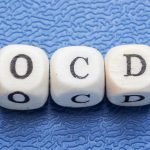Managing OCD During a Pandemic

Many who struggle with OCD are probably noticing a spike in their symptoms during these unprecedented times. Stress and uncertainty can often make OCD symptoms flare. Those who struggle with specific types of OCD may be having an even harder time: specifically those with contamination concerns and those concerned with harming others. Another symptom of OCD that may be particularly hard currently are perfectionism tendencies. While it may be harder to fight back against OCD with everything going on right now, it is more important than ever to not give in to compulsions and let them take over your life. One simple step you can take is to stay connected to your therapist, likely via telehealth at the moment. Having regular sessions during this time is key, especially as symptoms flare. Staying connected to others online or through social media options is also important, as the more you are connected to others the less stress you will notice. Another key piece is to continue to do things you enjoy and that bring you pleasure, as this will help lessen stress as well. Keeping a structured routine can be helpful and can help make things to continue to feel more normal. It can be important to try to continue with whatever routine you had going before that you are still able to do, for instance still getting at the same time in the morning and getting ready for work even if you are working from home. Adding consistent exercise into that routine will also be helpful, as this helps create endorphins and naturally lessens anxiety. Lastly, avoid reading the news all day, which will only lead to more stress and anxiety. It is important to limit access to only a couple of trusted sites and not get carried away with reading up on everything all day long.
Some specific OCD related steps you can take will vary depending on the type of OCD you have. For those who struggle with contamination concerns, get familiar with the CDC guidelines for the current pandemic and do not add other steps that are not recommended. For instance, they are recommending only washing hands for 20 seconds after being outside or in public, before eating, after going to the bathroom, and after you’ve coughed/sneezed/blown your nose. If soap and water are not available, they recommend you use hand sanitizer that contains at least 60% alcohol. They also only recommend disinfecting surfaces once per day. This should only take a few minutes per day and they suggest only focusing on the surfaces in your home that are frequently touched. It is also important to think about whether this is truly needed (for example, if you stayed home all day and had no visitors, do you really need to disinfect that doorknob?). It is also important to avoid some news sources that might not offer expert recommendations but rather their own opinions.
For those who struggle with fears of harming others, these symptoms might tackle the current pandemic and cause you to obsess about whether or not you might have infected someone or whether or not you might infect someone in the future. This might be a similar theme to past fears of contamination concerns, but it will still be helpful to alert your therapist to the new content so that new exposures can developed.
For those who struggle with perfectionism tendencies, this might be an especially trying time. The perfectionism could target all of the changes going on and adaptations people are having to make to conduct
their jobs, manage their families etc. It is important to give yourself a break and realize that it is impossible to be perfect in anything we do, but especially now during all of this change and uncertainty. Practice doing one or two things imperfectly on purpose as an exposure.
One important exercise I make sure to encourage all of my patients to do is to keep track of their victories against OCD, whether the victories are big or small. Keeping track of successes and not dwelling on everything that is going wrong is a helpful way to stay on track and to realize everything that you are doing to fight OCD, which is likely a lot. It can sometimes be hard to pick out the successes and often others only notice the failures or slips, but there are victories in there as well that deserve your attention and that can help give you confidence to fight back even harder next time

Nicole Bosse, PsyD
Lindner Center of HOPE, Staff Psychologist